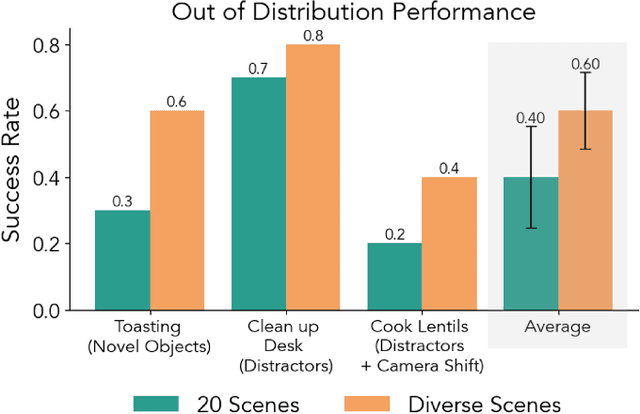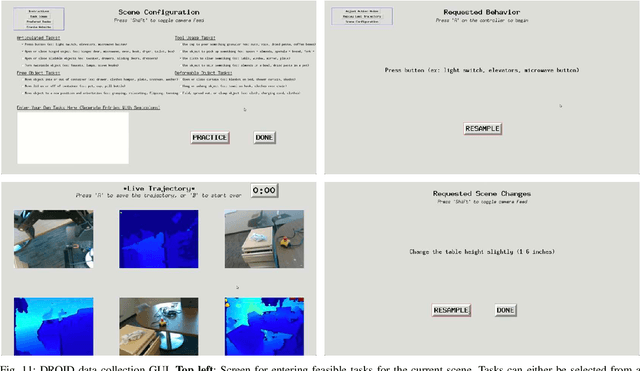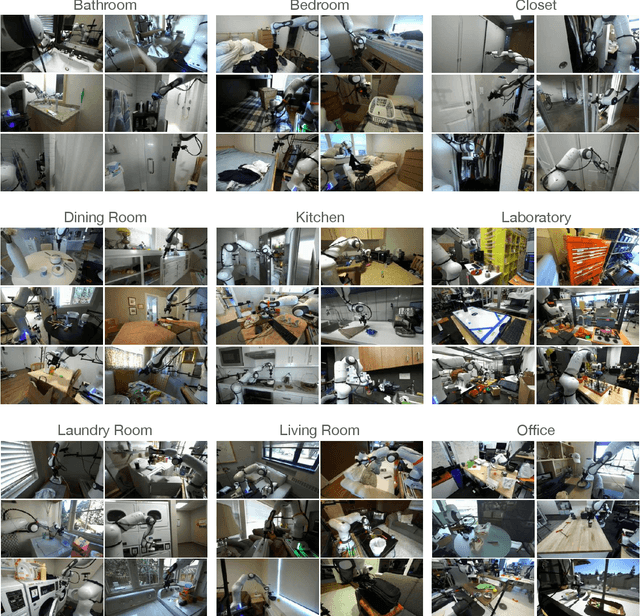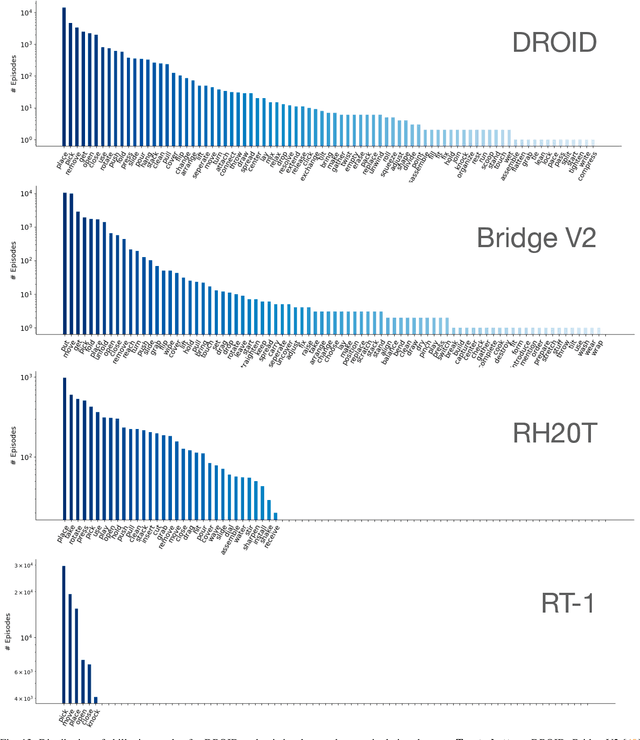Abraham Lee
Autonomous Improvement of Instruction Following Skills via Foundation Models
Jul 30, 2024Abstract:Intelligent instruction-following robots capable of improving from autonomously collected experience have the potential to transform robot learning: instead of collecting costly teleoperated demonstration data, large-scale deployment of fleets of robots can quickly collect larger quantities of autonomous data that can collectively improve their performance. However, autonomous improvement requires solving two key problems: (i) fully automating a scalable data collection procedure that can collect diverse and semantically meaningful robot data and (ii) learning from non-optimal, autonomous data with no human annotations. To this end, we propose a novel approach that addresses these challenges, allowing instruction-following policies to improve from autonomously collected data without human supervision. Our framework leverages vision-language models to collect and evaluate semantically meaningful experiences in new environments, and then utilizes a decomposition of instruction following tasks into (semantic) language-conditioned image generation and (non-semantic) goal reaching, which makes it significantly more practical to improve from this autonomously collected data without any human annotations. We carry out extensive experiments in the real world to demonstrate the effectiveness of our approach, and find that in a suite of unseen environments, the robot policy can be improved significantly with autonomously collected data. We open-source the code for our semantic autonomous improvement pipeline, as well as our autonomous dataset of 30.5K trajectories collected across five tabletop environments.
DROID: A Large-Scale In-The-Wild Robot Manipulation Dataset
Mar 19, 2024



Abstract:The creation of large, diverse, high-quality robot manipulation datasets is an important stepping stone on the path toward more capable and robust robotic manipulation policies. However, creating such datasets is challenging: collecting robot manipulation data in diverse environments poses logistical and safety challenges and requires substantial investments in hardware and human labour. As a result, even the most general robot manipulation policies today are mostly trained on data collected in a small number of environments with limited scene and task diversity. In this work, we introduce DROID (Distributed Robot Interaction Dataset), a diverse robot manipulation dataset with 76k demonstration trajectories or 350 hours of interaction data, collected across 564 scenes and 84 tasks by 50 data collectors in North America, Asia, and Europe over the course of 12 months. We demonstrate that training with DROID leads to policies with higher performance and improved generalization ability. We open source the full dataset, policy learning code, and a detailed guide for reproducing our robot hardware setup.
BridgeData V2: A Dataset for Robot Learning at Scale
Aug 24, 2023Abstract:We introduce BridgeData V2, a large and diverse dataset of robotic manipulation behaviors designed to facilitate research on scalable robot learning. BridgeData V2 contains 60,096 trajectories collected across 24 environments on a publicly available low-cost robot. BridgeData V2 provides extensive task and environment variability, leading to skills that can generalize across environments, domains, and institutions, making the dataset a useful resource for a broad range of researchers. Additionally, the dataset is compatible with a wide variety of open-vocabulary, multi-task learning methods conditioned on goal images or natural language instructions. In our experiments, we train 6 state-of-the-art imitation learning and offline reinforcement learning methods on our dataset, and find that they succeed on a suite of tasks requiring varying amounts of generalization. We also demonstrate that the performance of these methods improves with more data and higher capacity models, and that training on a greater variety of skills leads to improved generalization. By publicly sharing BridgeData V2 and our pre-trained models, we aim to accelerate research in scalable robot learning methods. Project page at https://rail-berkeley.github.io/bridgedata
 Add to Chrome
Add to Chrome Add to Firefox
Add to Firefox Add to Edge
Add to Edge